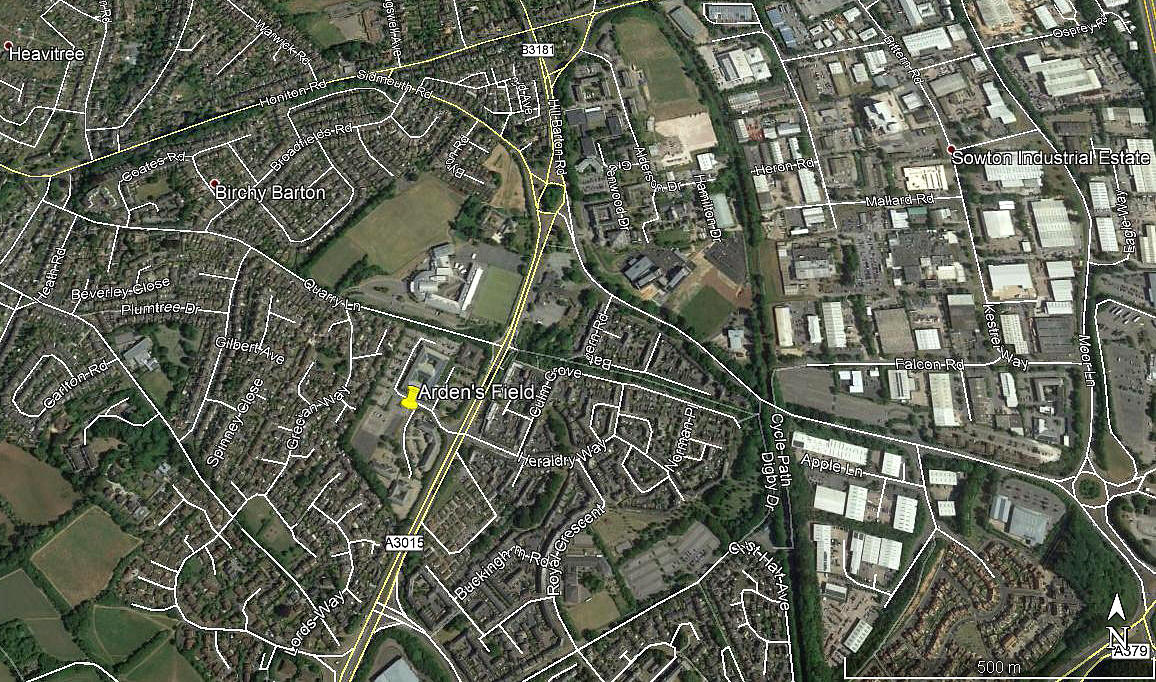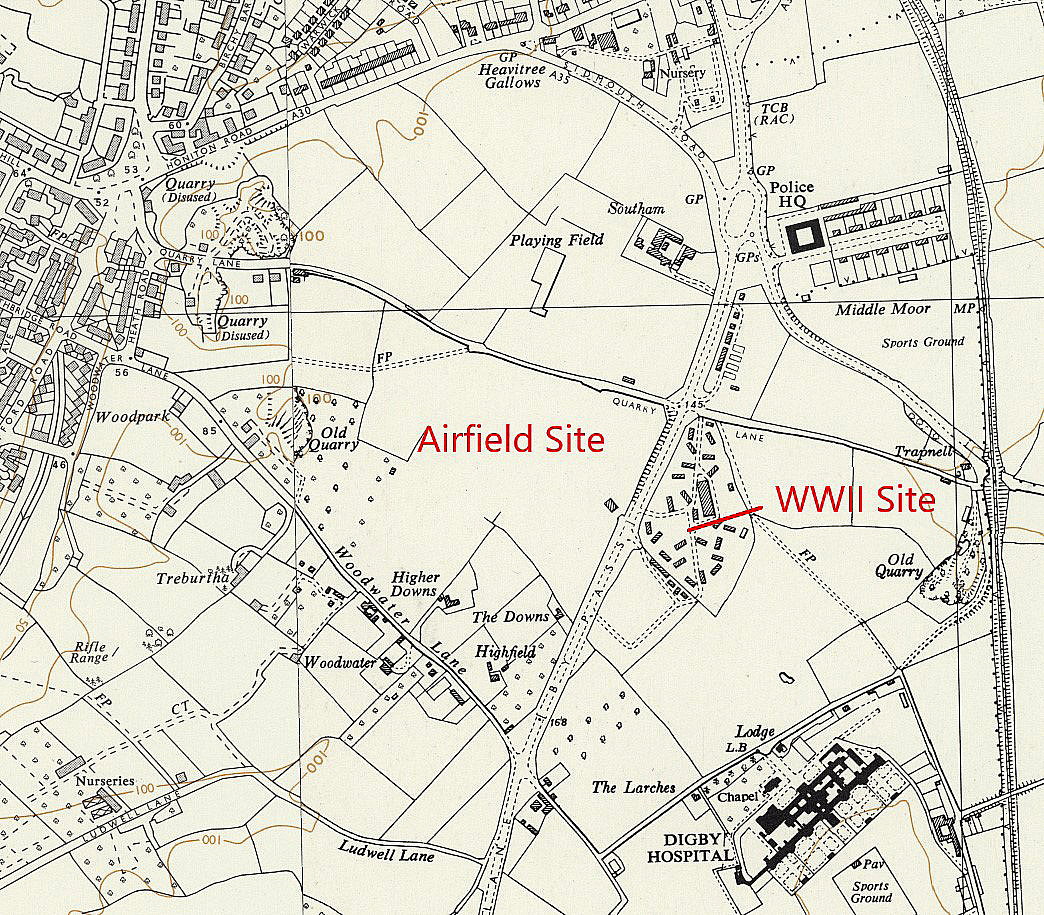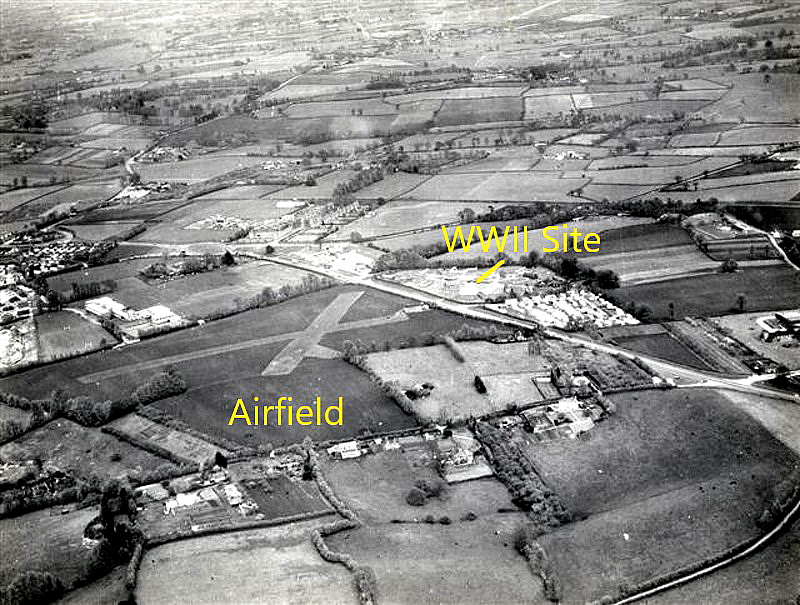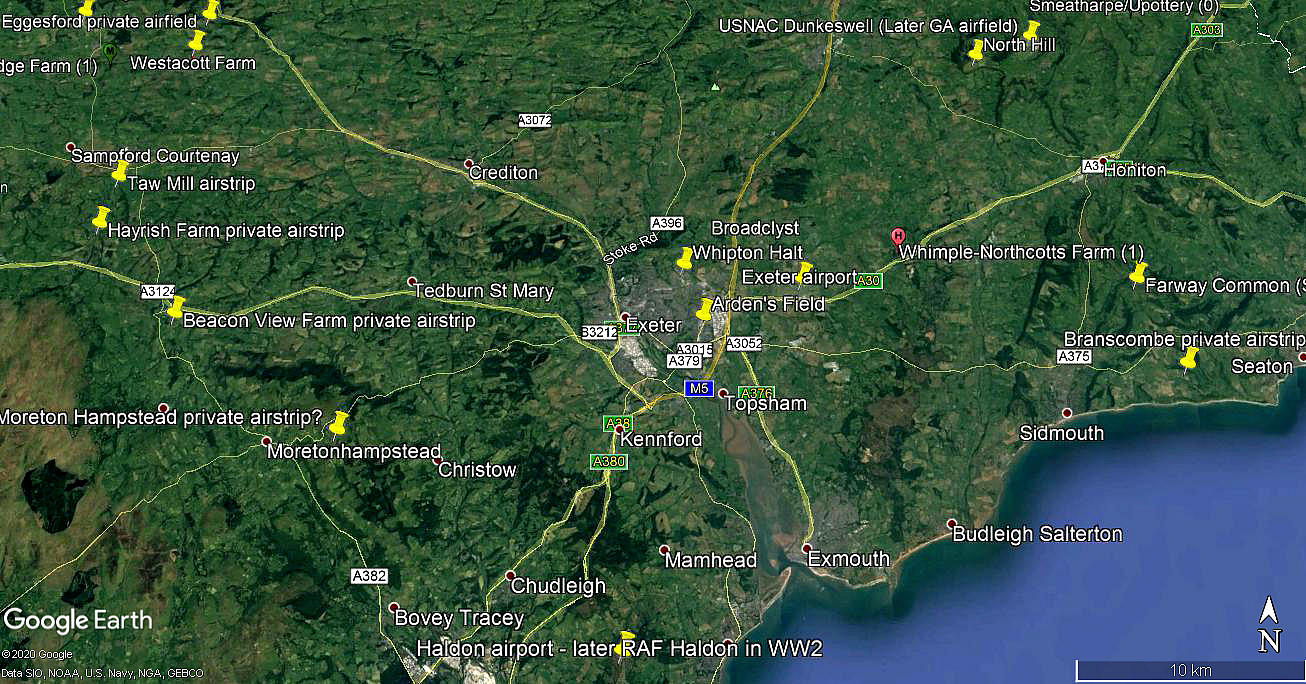Ardens Field
ARDEN'S FIELD: Private airfield (Aka EXETER BYPASS AIRFIELD)
Note: The first three images were kindly provided by Mr Michael T Holder. I have added the Google Earth © area view
Operated by: Mr Bertram Arden
Flying Club: Devonshire Flying Club (Probably operated by Bertram Arden?)
Location: Just W of the A3015, once part of the notorious Exeter bypass, 2nm E of Exeter city centre
Period of operation: Circa 1946 (perhaps?) to the late1950s/early 1960s
Runways: E/W grass NW/SE grass
NOTES: My initial information about this location comes from the account by Noel Collier in Tail Ends Of The Fifties by Peter G Campbell published in 1999 of which I have a signed copy. (I also added my two-pennyworth).
Regarding flying after WW2: "Private flying was very sparse in Devon at first, but one fine Saturday afternoon, while cycling near the old Exeter by-pass, the sight of a BA Swallow landing in an adjacent field caught my eye. This turned out to be a Cirrus-engined Swallow, G-AFHC, flown by one Bertram Arden. The field, now the headquarters of South West Water, contained a hangar full of gems, including Swallow G-AFGE (with a Pobjoy engine), BK897 (which was dismantled, and, my note - I can find no record of), Tiger Moth BB724 (which was previously G-ACDA of the early de Havilland School of Flying) and the infamous Surrey Flying Services AL.1 G-AALP. "
This was an aircraft I had never heard of, but Google it up and a lot of info appears. But not, as far as I can see, why did it became infamous? It appears that Bertram Arden purchased it in the late 1930s, restored it and flew it.
"Also in the background was the remains of Swallow G-AEAU, previously flown by the Bristol & Wessex Aeroplane Club at Whitchurch and now broken up for spares." And now comes the bit which I find fascinating. Was this then legal? Almost certainly not?
"Upon further enquiries we were invited to contribute our hard-earned pocket money for a 20-minute flip in G-AFHC; this was so exciting that my colleague and I went back for more. Next time it was G-AFGC, flown, as far as I can remember, by an ex-Coastal Command pilot called Day. His past WW II association with the sea soon came to light when a steep descent was made off Peak Hill at Sidmouth to beat up a boatload of trippers just putting out to sea off the York Steps; zero feet, mind you, and then around the parish church tower a couple of times - what would the CAA say nowadays at such flying?"
"It transpired that Bertram Arden and Company also had an Auster 5 G-AJHJ and a modified Taylorcraft Plus C G-AFTN, in both of which I flew."
Later Mr Collier tells us that: "An air taxi service was advertised using Auster 5 G-AJHJ, but such commercial endeavours were disapproved of by the management of Exeter Airport and soon ceased."
A bit of delving around appears to reveal that when Bertram Arden purchased his first aircraft in 1938, he flew it from the Hele School playing fields which were immediately north of the post WW2 aerodrome. It would have needed to have been hangared, so did he get permission to construct a hangar from the school? Also, what happened to that aircraft during WW2? Placed into storage presumably - many aircraft were, as the owners would have known that if it/they was placed in the hands of the RAF, they would have been of no use and probably scrapped or set fire to.
It is rumoured that the aircraft owned by Bertram Arden are still in store at a secret location.
We'd love to hear from you, so please scroll down to leave a comment!
Leave a comment ...
Copyright (c) UK Airfield Guide



















